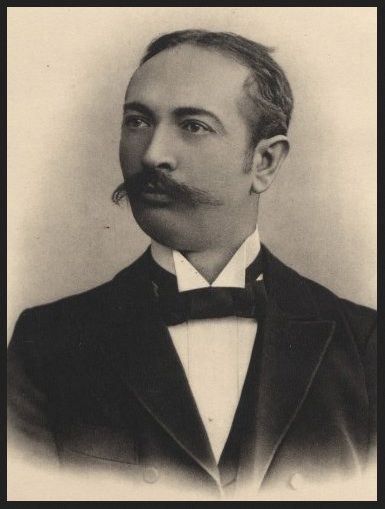Józef Piłsudski in German prisons

The prisoners were allowed to keep their clothes and were detained in separate cells on the third floor. Piłsudski was given a comfortable single cell with a window and an iron bed. The second inmate moved into a cell with less comfort.
As General Sosnkowski recalled, “this building was typified by a strong echo, caused by its construction and its building material, probably completely made of bricks, concrete and iron, so that the steps of our little procession sounded absolutely horrible in the silence of the night”. (...) “My cell”, he added, “measured about five paces in length and three paces in width, and since I do not assume that the architect of the honourable institution made any special effort to express his creative imagination in assessing its historical role, I conclude that the description of my cell will probably be a faithful representation of the Commander's cell.”
In view of the position and officer ranks of the detainees the conditions of detention can be described as honourable and adequate. Piłsudski was supplied with newspapers and books. The meals of the two prisoners were provided by the restaurant of the Vanselow Hotel at Heumarkt 3 (today: Targ Sienny). The Commander was even allowed to order wine with his meals.
In all this, it was no coincidence that Piłsudski and Sosnkowski were moved to the front-line city of Gdansk. The courts in the city worked swiftly, were very strict and often imposed death sentences. Had it come to a trial, therefore, the sentence could have been very detrimental to the prisoners. Indeed, an attempt was made to charge Piłsudski for forging documents. Meanwhile the Pole, Alojzy Rapior, secretary and sworn translator at the court martial in Gdansk, had learned of the matter (see: http://www.swzygmunt.knc.pl/MARTYROLOGIUM/POLISHRELIGIOUS/vPOLISH/HTMs/POLISHRELIGIOUSmartyr2263.htm). In the absence of a superior he called Warsaw to inform the POW and other authorities about the transfer of the detainees. It is therefore possible that the interventions that took place after this telephone call prompted the decision to transfer the two detainees to another prison in Germany.
Piłsudski's cell in Gdansk prison still exists. The memorial plaque inspired by the initiative “Nasz Gdańsk" (Our Gdansk) was unveiled on November 11th 2009 at the prison gate in ul. 3 Maja (Street of May 3). However, the cell itself is not open to the public. That said, it can be viewed virtually (see: https://trojmiasto.tv/Cela-Pilsudskiego-326.html).




![Flyer to protest against the illegal internment of Piłsudski, 1917 Flyer to protest against the illegal internment of Piłsudski, 1917 - Flyer: On Sunday 29th of this month we will gather in front of the Adam Mickiewicz Monument at 11 am to protest against the illegal internment of Commander Józef Piłsudski and Chief of Staff of the First Brigade, Lieutenant Colonel [Kazimierz]. Sosnkowski](/sites/default/files/styles/width_100_tiles/public/assets/images/obywatele-obywatelki-inc-dnia-29-bm-w-niedziele-zbieramy-sie-o-godz-11-rano-na-0_kopie.jpg?itok=hxoxe_Lq)














































